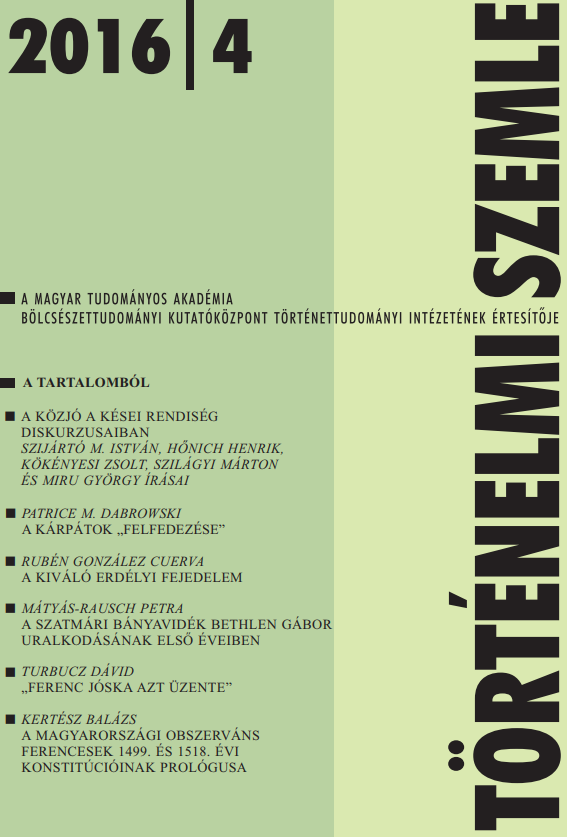Morális értékek és megosztható javak a reformkori politikai gondolkodásban
Moral Values and Divisible Goods in the Political Thinking of the “Reform Era”
Author(s): György MiruSubject(s): Economy, Ethics / Practical Philosophy, Political Theory, Political economy, Politics and communication, 19th Century
Published by: Magyar Tudományos Akadémia Bölcsészettudományi Kutatóközpont Történettudományi Intézet
Keywords: Moral Values; Divisible Goods; Reform Era; Hungary;
Summary/Abstract: Examining the interpretation of the concept of common good in the so-called Reform Era in Hungary (1830–1848), the study concludes that the use of “common good”, a notional part of early modern political language, had by then become fairly topos-like. Beginning with the texts that mediate the classical political inheritance, common good meant before all concord, the unity of the community, and was consequently connected to moral values, with community enjoying priority. Political economy, however, related as it was to rationalism, discourses of welfare, the language of politeness and utilitarianism, favored private interest and the conditions of private gain. The study first explores István Széchenyi’s Hitel from the perspective of the extent to which the emergence, or even dominance, of private interests modified the public view. Although frequently operating with economic descriptions and analyses, and using economic images, the Hitel does not completely break with the public view nor with the moral expectations connected to the nation. Yet it does make viewpoints of private interest sensible, and one of the efficient ways of its argumentation is to spur the quest for private gain and the acquisition of the „goods of life”. The analysis of Miklós Wesselényi’s Balítéletekről has yielded similar results. While its author is more strongly attached to republican outlook, and displays more sympathy towards the ancient constitution, he likewise operates with economic descriptions and images, emphasizing through economic argumentation the necessity of individual gain and material welfare, and thereby fragmenting and transgressing traditional public conception and morality. As both authors were as a matter of fact nationalists as well, as all politicians and publicists in the Reform Era, they could not completely part with republican public sense in the interpretation of the national community. The analysis also briefly touches upon the terminology of Ferenc Kölcsey and Ferenc Deák, a digression that, despite divergences in the frequency with which of synonyms and the individual elements of the verbal family (interest, happiness) are used, clearly corroborates the view that, in the political debates and publicism of the 1830s, all liberal reformers sought ways for the transformation and integration of society that would lessen the distance between private and public interests. Although they could express public good with a number of terms, they were clearly on the way to a national integration of the political community that would also make liberty rights prevail.
Journal: Történelmi Szemle
- Issue Year: 2016
- Issue No: 04
- Page Range: 541-554
- Page Count: 14
- Language: Hungarian

